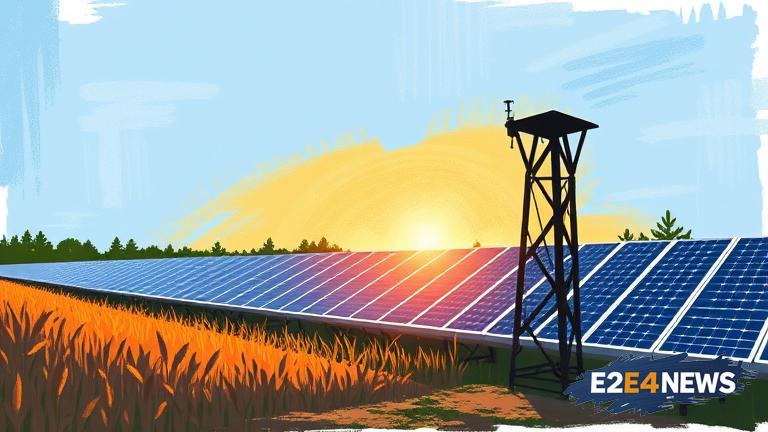The Wisconsin Farmers Union (WFU) recently hosted an event to explore the potential of solar projects in Southeast Wisconsin. The event brought together farmers, renewable energy experts, and local officials to discuss the benefits and challenges of solar energy in the region. With the growing demand for renewable energy, solar projects have become an attractive option for farmers looking to diversify their income streams. The WFU event aimed to educate attendees on the opportunities and challenges associated with solar projects, including the potential for lease payments, tax incentives, and job creation. The event featured presentations from experts in the field, including solar developers, engineers, and policymakers. Attendees learned about the various types of solar projects, including community solar gardens, rooftop solar installations, and large-scale solar farms. The discussion also touched on the importance of sustainable farming practices and the role of solar energy in reducing greenhouse gas emissions. The WFU emphasized the need for farmers to be proactive in embracing renewable energy sources, such as solar power, to reduce their reliance on fossil fuels and mitigate the impacts of climate change. The event also highlighted the potential for solar projects to create new economic opportunities for rural communities, including job creation and increased tax revenue. Furthermore, the WFU stressed the importance of ensuring that solar projects are developed in a way that prioritizes environmental sustainability and social responsibility. The organization emphasized the need for careful planning and consideration of the potential impacts of solar projects on local ecosystems and communities. In addition to the presentations, the event included a panel discussion featuring local farmers who have successfully implemented solar projects on their farms. The panelists shared their experiences and offered insights into the benefits and challenges of solar energy, including the importance of proper planning, maintenance, and monitoring. The WFU also announced plans to launch a new initiative to support farmers in developing solar projects, including providing technical assistance, financing options, and educational resources. The initiative aims to help farmers navigate the complex process of developing solar projects and to ensure that they are able to maximize the benefits of renewable energy. Overall, the WFU event highlighted the growing interest in solar projects in Southeast Wisconsin and the potential for renewable energy to play a key role in the region’s agricultural sector. As the demand for renewable energy continues to grow, it is likely that solar projects will become an increasingly important part of the region’s energy landscape. The WFU event demonstrated the organization’s commitment to promoting sustainable farming practices and supporting farmers in their efforts to adopt renewable energy sources. By providing education, technical assistance, and financing options, the WFU is helping to pave the way for a more sustainable and environmentally friendly agricultural sector in Wisconsin. The event also underscored the importance of collaboration and cooperation between farmers, renewable energy experts, and local officials in promoting the development of solar projects. By working together, these stakeholders can help to ensure that solar projects are developed in a way that prioritizes environmental sustainability, social responsibility, and economic viability. In conclusion, the WFU event on solar projects in Southeast Wisconsin was a significant step forward in promoting renewable energy and sustainable farming practices in the region. The event highlighted the potential for solar projects to create new economic opportunities, reduce greenhouse gas emissions, and promote environmental sustainability. As the agricultural sector continues to evolve, it is likely that solar projects will play an increasingly important role in the region’s energy landscape.
